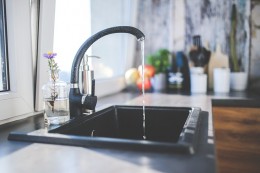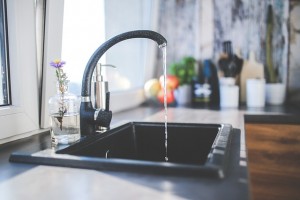Fall Allergies: How To Have the Best Breathing Air as Seasons Change
You would think that after summer’s heat has passed, the allergy season would pass as well. But for those who suffer from fall allergies, the symptoms are just beginning to appear. From fall-blooming plants to mold and mildew making another visit during the cool, damp days, allergens can seem to lurk around every corner. Let’s take a look at how to improve your indoor air quality when the seasons change so your home can give you relief from the allergy-laden outdoors and remain a safe refuge from the perils of the great outdoors.
Home 101: Breathing in the Best Air Quality at Home
Your family spends more time in your home than anywhere else. Isn’t it important that they breathe the cleanest air possible? These tips will help ensure your family avoids the many health issues related to poor indoor air quality.
Air Purifiers vs Ventilators For Your Home
Quality air inside the home is just as important as being able to enjoy quality air while outdoors. Unfortunately, however, indoor air quality is often worse. According to the Environmental Protection Agency (EPA), indoor air pollutants can be two to five times higher than outdoors.
Two pieces of equipment that can improve indoor air quality are ventilators and air purifiers. Even though they are used inside the home for some of the same reasons, there are differences between the two.
Improve Your Air Quality with These Minor Changes
It should go without saying that proper and regular HVAC maintenance is an excellent way to make sure you and your family enjoy quality indoor air. However, there are other easy and practical steps you can take to further enhance the quality of the air that you breath in your home. Below are a few ways we would like to highlight.
What Causes of Evaporator Coil Leaks in Your Clearwater Air Conditioner?
Evaporator coil leaks can reduce your A/C system’s energy efficiency and repairs can be expensive. Fortunately, there are some things you can do to minimize the causes of evaporator coil leaks in your Clearwater home.
Water condensation from the air conditioner is normal. Water vapor condenses and collects on the evaporator coil as the coil takes heat from the surrounding air. As the water builds up on the coil, it drips into a pan below and flows out of your house. The only time you need to worry is if the drain pan leaks or the drain pipe backs up and water spills onto the floor.
Leaks in the evaporator coil are a more expensive A/C problem than overflowing condensate drains. The air conditioner doesn’t burn refrigerant. It should maintain the same volume in a closed loop. If your HVAC tech has to add refrigerant during an annual maintenance visit, you probably have a leaky coil.
Causes of Evaporator Coil Leaks
Manufacturing defects and faulty installation are causes of evaporator coil leaks that occur in the first few months after a new system is put into service. These leaks can usually be fixed by tightening connections or re-soldering joints.
One of the other causes of evaporator coil leaks is formicary corrosion, which results when formic acid on the copper coil slowly eats tiny holes through the coil wall. Formic acid deposition is a result of the interaction of moisture on the coil with volatile organic compounds (VOCs) in your indoor air. VOCs get into your air from cleaning products, paint, new carpeting and other construction materials.
Preventing Evaporator Coil Leaks
There are a few steps you can take to prevent or delay evaporator coil leaks:
- Have A/C coils cleaned every year to minimize corrosive build-up on the copper tubing.
- Install ultraviolet (UV) lighting inside ductwork to neutralize VOCs in the air supply.
- Provide a fresh outdoor air supply via energy-exchanging vents.
- Minimize the use of VOCs inside your home.
For more information about causes of evaporator coil leaks, or for other home comfort concerns, call us at Cox Air Conditioning & Heating. We proudly serve the HVAC needs of those in the Clearwater and surrounding areas.
Image Provided by Shutterstock.com
Dirty Air Filter: 3 Problems It Can Cause
Although the air filter may seem like a minor part of your home’s HVAC system, its job is essential to keeping your family healthy, keeping your home clean and comfortable and prolonging the life of your HVAC system. Changing a clogged or dirty air filter may be inconvenient and messy, but by doing so in a timely manner, you can help prevent the following problems:
Reduced System Airflow
A dirty air filter will reduce the airflow through the forced-air cooling or heating system, which not only decreases your comfort level, but forces the HVAC system to run longer and work harder to move the air. This can prematurely wear out sensitive system components including compressor motors, blower motors, fan motors, pulley bearings and belts. Air conditioners may begin to freeze up if the reduced airflow slows the heat absorption in the evaporator coil, or furnaces may stop heating when the reduced airflow in the heat exchanger causes that component to overheat, shutting off the burners. Additionally, because the system is running much less efficiently, your utility bills will increase, sometimes dramatically.
Higher Indoor Air Pollution
With a dirty air filter, airborne particles such as dust, pollen, pet dander and other harmful pollutants will remain in the air, continually circulating throughout the house. This can cause breathing difficulties for anyone living in the home, but the situation is much worse for those who suffer from allergies, asthma, emphysema or other respiratory illnesses. Checking the air filter monthly, and cleaning or replacing it when necessary, can help keep your indoor air quality high and your family safe.
Accumulation of Excess Dust
Without being removed by the air filter, dust will begin to accumulate in more places around your home, increasing your cleaning workload. In addition, the dust will begin to gather in the air ducts, costing you extra money to have them cleaned.
To learn more about the effects of a dirty air filter on your health and your HVAC system, consult our experts at Cox Air Conditioning & Heating. We have been serving Clearwater, Tampa, St. Petersburg and the surrounding areas since 1958.
Image Provided by Shutterstock.com
Air Filters: How Efficient Does Yours Need to Be?
One of the most important components of forced air heating and cooling systems are the air filters. They make an impact on energy bills, system longevity and indoor air quality. Although it’s one of the most important elements of your HVAC system, it’s also one of the easiest to overlook.
Filters carry efficiency ratings known as minimum efficiency reporting values, or MERV, which tell consumers the smallest particle the filter can trap. The scale runs from 1 to 16 for residential filtration, and efficiency rises as the numbers get higher. Most HVAC systems can use a filter with a MERV rating of 8 or less, and anything higher has the potential to slow the airflow through the air handler, which harms your system and increases energy bills.
The least expensive air filters are fiberglass and have MERV ratings no higher than 4. The size of the particles an air filter can remove is measured in microns, and a filter with a MERV of 4 will trap particles no smaller than 10 microns, including dust, pollen, lint and larger mold spores. An air filter with a MERV up to 8 will trap airborne particulates that are 3 microns and larger, including mold and other spores, hair, animal dander and very fine dust.
Before you upgrade your filters to a higher MERV rating, check the owner’s manual to learn the maximum density your air handler can handle, or check with an HVAC professional who can tell you.
No matter what filter you choose, be sure to check air filters monthly. Higher efficiency filters trap more particles, so they can accumulate dirt quicker. One of the ironies of filtration is that the fiberglass filters actually trap more particles when they’re dirty, but combined with the slower airflow and the fact that more dust enters your system, it’s not a good way idea to use them when they’re dirty.
To learn more about air filters for your HVAC system in the Tampa and St. Petersburg area, contact Cox Air Conditioning & Heating today.
Your Air Filter Is Rated by MERV, But Why Should You Care?
As part of their effort to improve indoor air quality, the American Society of Heating, Refrigerating and Air-Conditioning Engineers designed a system for rating air filter efficiency. The system is called MERV, and stands for Minimum Efficiency Reporting Value. If you wish to improve air quality in your Clearwater home, understanding this rating is key.
Every air filter is capable of sifting out airborne particles within a specific size range. Some do the job better than others and are able to sift out finer particles, and therefore get a higher rating. Ratings run from 1-20. Filters that are MERV 15 or higher are usually only found in environments such as pharmaceutical and electronics cleanrooms, places that demand extreme filtering of particles such as viruses and carbon dust.
The following is a breakdown of MERV ranges and their filtration capability.
1 – 4: Any product with a rating in this range is capable of very basic filtration. From textile/carpet fibers and spray paint dust on the lower end, to pollen and dust mites on the higher end.
5 – 8: Filters on the higher end of this range are ideal for most households. As a filter approaches a rating of 7, it begins to handle particles the size of mold spores and hairspray fumes effectively. Most homeowners need not be concerned with particles smaller than these.
9 – 12: Auto emissions and milled flour contain similar sized particles, and so are best disposed of with a 10 MERV-rated filter or higher. These filters work well for hospital labs and auto mechanic shops. As you approach ratings of 11 and 12, you find filters that are suited to good commercial buildings and superior residential housing.
13 – 14: An air filter with a MERV rating of 14 can handle the spray from a sneeze as easily as most kinds of tobacco smoke. Household A/Cs rarely have this kind of filter, as most are incapable of handling the stress caused by reduced airflow.
For more information on air filters and quality, contact the pros at Cox Air Conditioning & Heating.
A Duct Sealing Project Can Keep That Cool Air Coming All Summer
Ensuring that all your air ducts are properly sealed can have an enormous impact on both your power bill as well as your indoor air quality. Proper duct sealing will ensure that the heated or conditioned air will reach its proper destination, not leak into another part of your home. This way, each one of your rooms will have a more comfortable, uniform temperature.
Additionally, proper duct sealing is vital for clean, healthful air. Fumes from dryers and improperly stored chemicals, as well as pollen can reduce air quality in your home as they enter into your home’s conditioned air through leaky ducts. Another added benefit to proper duct sealing is that it is good for the environment. The more efficient your home, the less fossil fuels are consumed to power it.
Some easy ways to determine if you have leaks in your ducts are as follows:
- If some rooms are significantly harder to heat or cool
- A lack of air movement in a specific room
- High monthly utility costs
Sealing your ducts properly is a good project to undertake as the weather cools, before heating season. You will realize significant savings by fixing a leak or a crack. Most leaks or cracks can be fixed with either metal tape or mastic sealant. Another common place for leaks is the connection between registers, especially where they meet the ceilings, walls and floors.
Having trouble with leaking ducts? Visit our website or call the experts at Cox Air Conditioning and Heating today. One of our associates would love to help you with your project, whether by answering a question or sending out a member of our professional team to help you get the job done right.
How You Can Have the Best Air Quality in Your Home
Because the home is a confined space, indoor air quality can easily suffer. Dust, chemicals, pollen and mold spores all have the potential to cause health problems. Here is how you can have the best air quality in your home.
Keep out pollutants
Keep doors and windows shut on windy days and days when pollen counts are high. Use mats in front of all exterior doors and encourage all household members to wipe their feet. It is also wise to keep a separate pair of shoes as indoor-only shoes. Keep these by the door and change into them whenever you get home.
Clean for fresher air
Vacuum, dust and mop at least twice a week. This reduces dust mites, pollen and bacteria in the home. Don’t forget to clean upholstery and drapes about once or twice a month.
Avoid chemicals
Many cleaning products and most air fresheners release harmful chemicals into the air. Substitute white vinegar, baking soda, lemon or hydrogen peroxide for safely cleaning most surfaces. The only exception is to avoid using vinegar or lemon on reactive materials such as marble or other stone.
Clean your filters
Your HVAC filters help reduce air pollution, but not if they are left dirty. Remember to clean or change air filters every other month or more often for cleaner air and as preventive maintenance.
Test for air problems
Have your home tested for radon, molds spores and carbon monoxide. All are serious air quality problems that can cause illness or death.
Keep humidity in check
Humidity increases mold, mildew and bacterial growth. If your home constantly feels humid, consider a dehumidifier.
Add houseplants
Many common houseplants act as air purifiers. Consider adding spider plants, Boston ferns and other plants to your home.
For more information about how you can have the best air quality in your home, please contact us at Cox Air Conditioning & Heating. We’ve been serving the area of Clearwater, Tampa, St. Petersburg, Palm Harbor, Trinity and West Chase since 1958, and look forward to helping you.









Recent Comments